Modern Thinkers
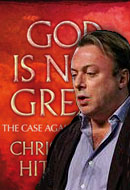 The Trouble with Hitchens
The Trouble with HitchensFriday, December 16, 2011 by Benjamin Kerstein | Jewish Ideas Daily » Daily Features
When Christopher Hitchens passed away yesterday at the age of 62, the encomia started pouring in almost immediately. Most of this praise is deserved, as the acumen of Hitchens's muscular criticism and the wit of his ripostes will be with us for a long time to come.
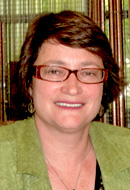 Is Judaism a Religion?
Is Judaism a Religion?Tuesday, November 29, 2011 by Lawrence Grossman | Jewish Ideas Daily » Daily Features
There is no end to the conundrums involved in defining what it means to be a Jew. Must a Jew be someone who believes in the Jewish religion, in the way a Christian believes in Christianity or a Muslim in Islam? That can't be the case, since many devoted Jews are atheists.
 Muslims and Jews in America
Muslims and Jews in AmericaMonday, October 10, 2011 by Aryeh Tepper | Jewish Ideas Daily » Daily Features
Consider these two questions: During the past ten years, approximately 170 American Muslims have been arrested for plotting terror attacks against Jews or materially aiding other terrorists.
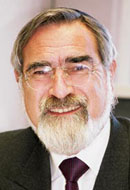 Rosh Hashanah with the Chief Rabbi
Rosh Hashanah with the Chief RabbiTuesday, September 20, 2011 by Lawrence Grossman | Jewish Ideas Daily » Daily Features
Ten years ago, the first day of Rosh Hashanah—the two-day Jewish New Year—fell on September 18. That was one week after September 11, 2001, when almost 3,000 people were killed by Muslim terrorists. On that Rosh Hashanah, rabbis did not lack for sermon topics.
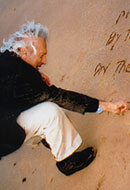 The Jewish Samuel Menashe
The Jewish Samuel MenasheMonday, August 29, 2011 by David Curzon | Jewish Ideas Daily » Daily Features
The poet Samuel Menashe, who died on August 22 at the age of eighty-five, grew up in Queens, New York. His poems have always been appreciated by other poets; but, until late in his life, his poetry did not receive the attention it deserved.
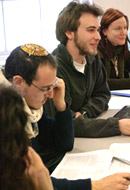 Reconstructing Judaism
Reconstructing JudaismWednesday, August 3, 2011 by Joseph J. Siev | Jewish Ideas Daily » Daily Features
At a time when all three major Jewish denominations in America—Orthodox, Conservative, and Reform—find themselves in a state of deep internal fracture, a fourth and much smaller movement, Reconstructionism, has just voted to create a unified body to coordinate the activities of its lay and rabbinical arms.
 The Loyalties of the Sephardim
The Loyalties of the SephardimFriday, July 22, 2011 by Aryeh Tepper | Jewish Ideas Daily » Daily Features
In a recent Haaretz column, Gideon Levy, the radical leftist polemicist, sounded the warning that Israel's religious Zionists—"the knitted skullcaps"—have joined hands with the ultra-Orthodox and the Sephardim to form "a united tribe of zealots."
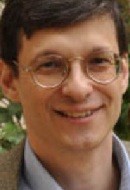 The Bible and the Good Life
The Bible and the Good LifeThursday, July 14, 2011 by Aryeh Tepper | Jewish Ideas Daily » Daily Features
What manner of work is the Hebrew Bible? The 17th-century freethinker Baruch (Benedict) Spinoza had an answer. As part of his war to emancipate philosophy from the influence of religion, he reduced the biblical message to, in effect, one word: obedience.
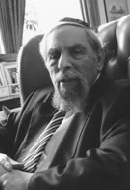 The Reluctant Renegade
The Reluctant RenegadeTuesday, July 12, 2011 by Elliot Jager | Jewish Ideas Daily » Daily Features
Since its founding, Conservative Judaism in the U.S. has defined itself in sharp contrast to Reform, pursuing a more religiously centrist and Zionist middle course. Its UK parallel, Masorti ("traditional") Judaism, was born as a secession movement from Orthodoxy—inspired by theologian Louis Jacobs.
 What is Aggadah, and How to Read It
What is Aggadah, and How to Read ItThursday, July 7, 2011 by Elli Fischer | Jewish Ideas Daily » Daily Features
Although the Talmud is best known for its discourse on religious law, its pages contain a vast amount of non-legal material, including ethical teachings, interpretations of biblical narratives (midrash), and excurses on topics from brain surgery to dream interpretation.
Editors' Picks
Turning the Other Tank Eric Cohen, First Things. Stanley Hauerwas argues that being a Christian means never killing others in war. If this is Christianity, then Christianity is a form of eschatological madness.
Teach Your Tongue to Say “I Don't Know” David Wolpe, Jewish Journal. When a nation struggles with the threat of being vaporized in a nuclear conflict, to call its policies on the West Bank and Gaza "the great question of the age" is myopic at best.
Must a Jew Believe Anything? Menachem Kellner, Book of Doctrines and Opinions. According to one Maimonides scholar, dogma is a device for determining who is "out," whereas the demand of the hour is finding ways of keeping Jews "in." (Interview by Alan Brill.)
A Mask for Janus Margalit Fox, New York Times. For a generation of Reform Jews, the commentary of the recently deceased W. Gunther Plaut heralded a return to Hebrew scripture. But it also made new interpretations permissible.
The Wages of Criticism Zev Eleff, Jewish Review of Books. The 18th-century scholar Aryeh Leib Ginsburg was a harsh critic of earlier halakhic authorities. Did they finally exact revenge on him? And, if so, who's been covering up the story?
Arendt in Jerusalem Sol Stern, City Journal. With their monumental errors of political and moral judgment, Hannah Arendt's writings on Zionism, Israel, and the Holocaust have metastasized into a destructive legacy.
The Perils of Self-Deception Colin Rubenstein, Australia/Israel & Jewish Affairs Council. To imagine that anti-Semitism would evaporate if Israel signed a peace deal with the Palestinians is sheer fantasy. So why do pundits and policymakers regularly make this claim?
Incitement and Enlightenment Yitzhak Laor, Haaretz. Even the fact that ultra-Orthodox women work in professions while the men are increasingly cooking and taking care of the children isn't enough. The Left demands a single set of standards for everyone: its own.
Persuaded D.G. Myers, Literary Commentary. On the heels of his roll call of the best Jewish books of 2011, Myers reflects on how the prose of Irving Kristol led to his own political and religious "right turns."
What Does Paul Goodman Mean to Me? Michael Walzer, Dissent. He wasn't a particularly nice person, he wasn't a great novelist, he was a fine poet only sometimes, and he wasn't much of a historian—but, but, but . . .

